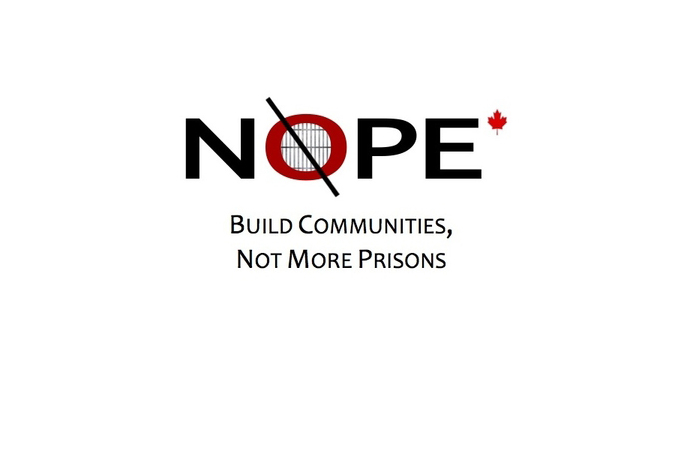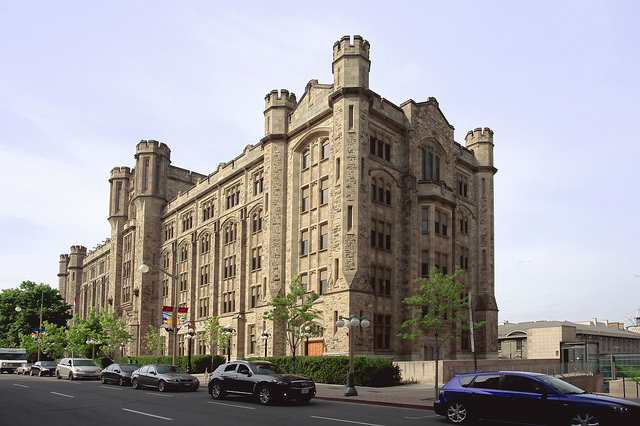
Have your say – reinstate Kingston Prison Farms
June 24, 2016
CFSC endorses No On Prison Expansion (#NOPE)
August 2, 2016We are often asked about the regulations on charities, including charities’ political activities and overseas work. This typically happens in response to news stories about charities not being in compliance with Canada Revenue Agency requirements. As this is happening so often, we felt it would be worthwhile to write up a few points that registered charities should know.
Please note the following is not legal advice, just our take from having attended a number of charity law presentations over the years.
Canada Revenue Agency is prevented by law from providing details about what compliance issues it finds during audits. News articles are typically written when a charity chooses to go to the media, meaning they only present a journalist’s representation of the understanding of the charity about what has happened. This can be prone to inaccuracies and sensationalized language and headlines. Read such news with some skepticism. Reports could be misrepresenting information or trying to create a story. It is unfortunate that the government is not allowed to provide the public with more details about its decisions.
How does CRA decide who gets charitable status?
-
- Charities are registered for specific purposes, called their charitable objects. Most news articles do not say what a charity’s objects are. But this is actually highly important and relevant information. It is the reason why the charity was registered.
-
- It is possible to have bylaws which are acceptable for a nonprofit and so would be approved by Industry Canada, but which aren’t charitable and so wouldn’t be acceptable to Canada Revenue Agency. There are many more nonprofits than registered charities in Canada. Some nonprofits may choose not to get charitable status because their work is too political or doesn’t otherwise fit into the narrower regulations on charities. Registered charities are the only ones that can issue charitable tax receipts.
-
- As we understand it, the types of charitable objects which are allowable must fall into one of four categories: relief of poverty, advancement of education, advancement of religion, and other purposes beneficial to the community in a way the law regards as charitable.
- When a charity is registered, it proposes specific charitable objects to CRA and makes the case for why these fit into one of the four categories above.

Office of the Canada Revenue Agency, Ottawa, ON. Photo CC-BY Michel Rathwell/Flickr.
What is political?
-
- Canada Revenue Agency defines political activities like this:
- explicitly communicates a call to political action (that is, encourages the public to contact an elected representative or public official and urges them to retain, oppose, or change the law, policy, or decision of any level of government in Canada or a foreign country);
- explicitly communicates to the public that the law, policy, or decision of any level of government in Canada or a foreign country should be retained (if the retention of the law, policy or decision is being reconsidered by a government), opposed, or changed; or
- explicitly indicates in its materials (whether internal or external) that the intention of the activity is to incite, or organize to put pressure on, an elected representative or public official to retain, oppose, or change the law, policy, or decision of any level of government in Canada or a foreign country).
- Canada Revenue Agency defines political activities like this:
- It is important to note that the definition of political used by CRA might not be your common sense understanding of “political” (e.g. pressuring a corporation to improve its human rights record is not political under this definition as it isn’t seeking to change any laws or decisions of a government. Nor is it political to pressure a government or any other actor to abide by existing laws if those laws are currently being violated). So it seems that much valuable social justice work may serve a charity’s charitable objects and not fit into the definition of political.
So when is political OK/not OK?
-
- Charities can’t exist to fulfill a stated or unstated political purpose, but that work which they do that does fit the definition of political is still OK as long as it clearly serves the charitable objects.
-
- A charity’s political activities must always be non-partisan (e.g. if a charity and a political party support the same public policy, the charity can promote this policy but cannot directly or indirectly indicate support for the political party, candidate, or party policy).
-
- Charities doing political activity need to track it and generally not spend more than 10% of their revenue on it (it can be a higher percentage if the charity’s revenue is low). Resources spent on political activities need to be accurately reported on the annual Charity Information Return that all charities must file with CRA.
- It should go without saying, but charities need to choose all of their activities carefully, ensuring that their work is informed by facts and is as free from bias as possible. They need to properly control and direct the use of their resources (donations, property, etc.). Keeping proper records of decisions, having written contracts like memorandums of understanding, getting reports from activities (including photos, financial information, and narratives), are all very important parts of properly running a charity.
Want to learn more from a charity lawyer?
Here’s a half hour presentation by Mark Blumberg about political activities:




